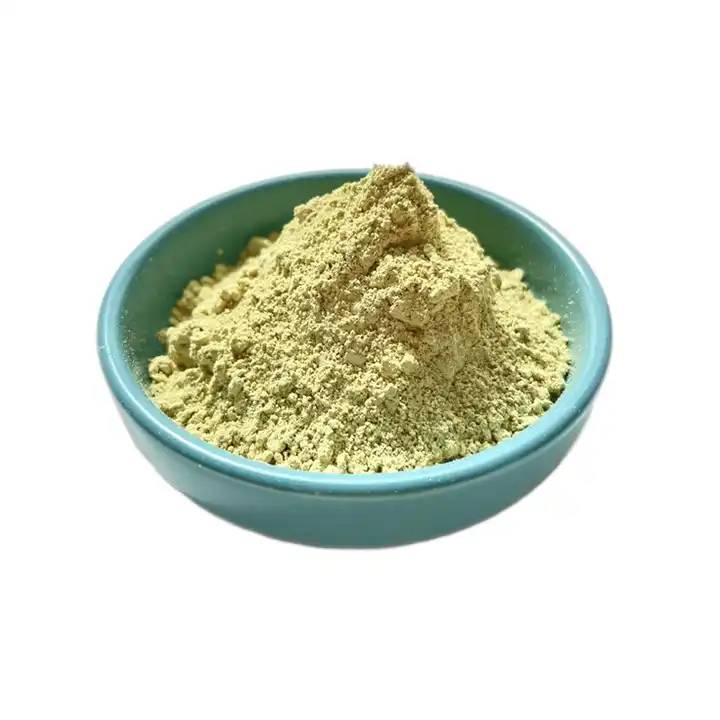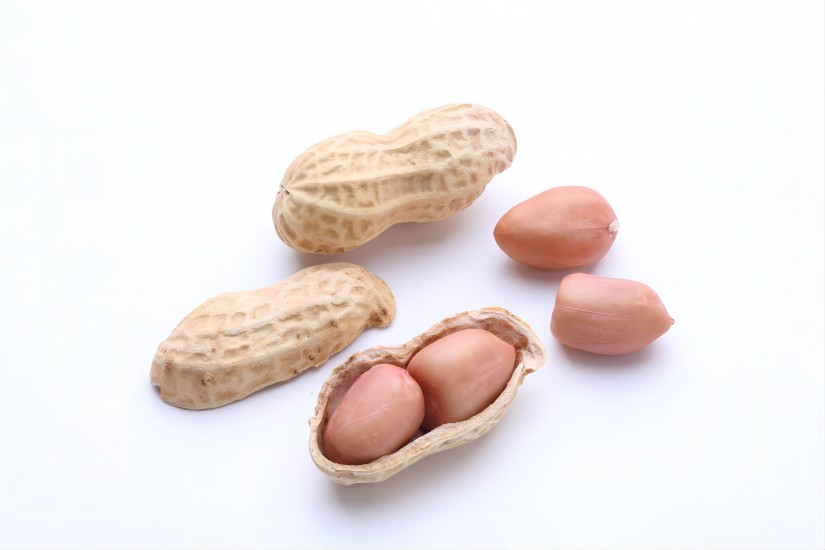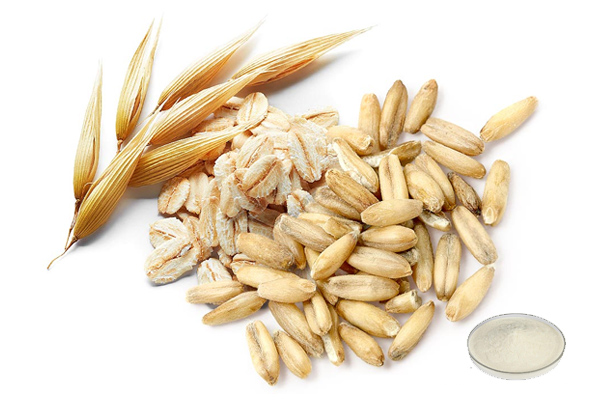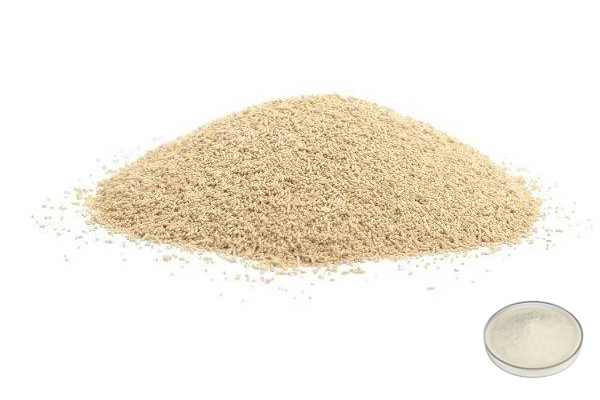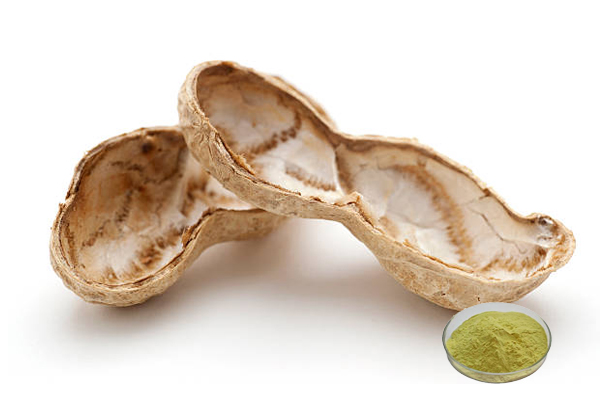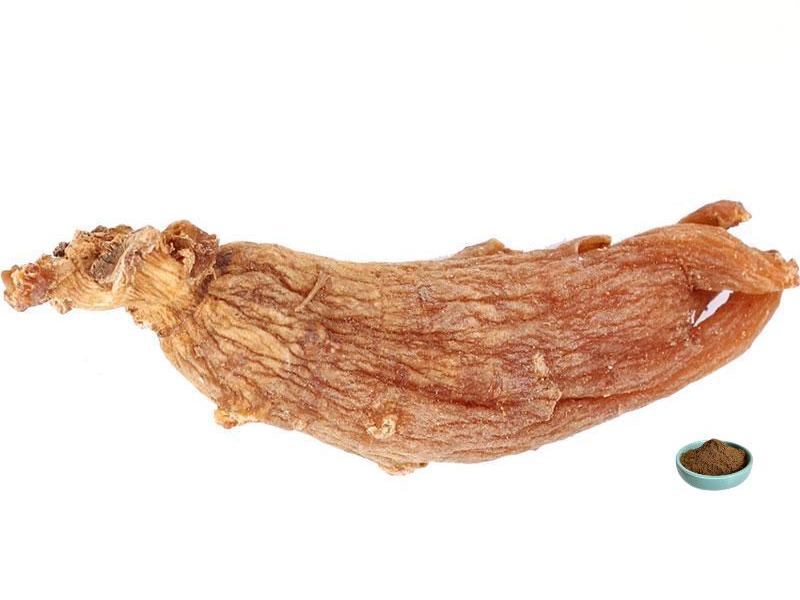Luteolin Bulk Powder 98%
Product Name:Luteolin Bulk Powder 98%
Assay:Luteolin:≥98%
Testing Method:HPLC
Appearance:Light Yellow Powder
Pesticide Residue:Comply with (EC) No 396/2005 Standard
- Description
- Data Sheet
- Certificate
-
What is Luteolin Powder?
Luteolins are natural flavonoid compounds, named after their original isolation from the branches, leaves, and stems of r. Odorata l. is a genus of lignans (reseda) in the family Rosaceae. Peanut hulls are rich in luteolin and are one of the most important sources of luteolin. Peanut hulls are one of the wastes of peanuts, and the development and utilization of luteolin and other natural flavonoids in peanut hulls can improve the comprehensive utilization value of peanuts.
Luteolins are a kind of natural flavonoids, which exist in many kinds of plants. It has a variety of pharmacological activities, such as anti-inflammatory, anti-allergic, lowering uric acid, anti-tumor, antibacterial, anti-virus, etc. It is mainly used for cough, expectorant, anti-inflammatory, lowering uric acid, treatment of cardiovascular diseases, treatment of "amyotrophic lateral sclerosis", sars, hepatitis, and so on.
Green Spring Technology supplies luteolin powder 98% in a wide range of sizes. This pure lignocaine powder has passed the ID test, heavy metal, solvent residue, and microorganisms under the European Pharmacopoeia, U.S. Pharmacopoeia, Japanese Pharmacopoeia and other international standards. The third-party authoritative test report is available.
Specification:
Product Name
Luteolin Bulk Powder 98%
Latin Name
ResedaodorataL.
CAS No.
491-70-3
Source
Shell of the fruit of the leguminous plant groundnut
leave and stem of ResedaodorataL.
Active Ingredients
Luteolin
Assay
Luteolin:≥98%
Testing Method
HPLC
Appearance
Light Yellow Powder
Pesticide Residue
Comply with (EC) No 396/2005 Standard
Regulations:
It conforms to EU regulations.
Looking for a Quotation?Benefits:
Anti-inflammatory
Inflammation is a defensive response produced by the body after being stimulated by injury factors. Studies have shown that the anti-inflammatory effect of luteolin mainly occurs within immune cells, especially macrophages. Wang et al. evaluated the effect of luteolin on the activity and apoptosis of RAW264.7 macrophages using MTT and cell death Elisa methods. The research results show that 20mo1/L of luteolin can cause morphological changes in macrophages, slow cell contraction, and the appearance of apoptotic bodies can be observed. In vivo, luteolin can upregulate signal transduction, transcriptional activator 6 (p-STAT6), and inhibit transcriptional activator 3 (p-STAT3), thereby altering macrophage polarization and transitioning from pro-inflammatory M1 phenotype to anti-inflammatory M2 phenotype. At the same time, cytokines undergo a transition from pro-inflammatory to anti-inflammatory, playing a role in inhibiting inflammation.
In the acute gouty arthritis model induced by sodium urate, different doses of luteolin (50, 100, 150mg/kg) can significantly reduce the swelling of the ankle joint in mice. The content of IL-1B, L-17, IL-6, and TNF-A in serum is also relatively reduced, and the protein level of NF-KB and tissue inflammatory activity are also relatively reduced. It is expected to become an effective drug for treating gouty arthritis. The expression levels of HMGB1mRNA were relatively reduced, indicating that luteolin can exert anti-inflammatory activity by inhibiting the HMGB1-NF-KB signaling pathway.
Antibacterial
Numerous studies have shown that luteolin has inhibitory effects on various bacteria. Guo et al. used the broth dilution method to determine the minimum inhibitory concentration (MIC) of luteolin against purulent occult bacteria, which was 78g/mL. This study also indicates that luteolin can disrupt the integrity of bacterial cell walls, increase the permeability of cell membranes, and lead to changes in cell morphology. In addition, luteolin can inhibit the activity of DNA topoisomerase in cells, thereby reducing the content of total protein and nucleic acid in cells and inhibiting bacterial proliferation.
Other studies have shown that luteolin (50mg/mL) can cause E. coli and Enterobacter cloacae cells to transform into irregular shapes, with a few E. coli cells experiencing distortion or even rupture. The MIC and MBC of luteolin against Escherichia coli were 64g/mL and 128g/mL, respectively, and the MIC and MBC against Enterobacter cloacae were 128g/mL and 256g/mL, respectively. Luteolin has good anti methicillin-resistant Staphylococcus aureus activity and has synergistic effects when combined with quinolones and aminoglycosides. It can reduce the MIC of antibacterial drugs, thereby reducing their toxic side effects. The above results indicate that luteolin has good development prospects in natural antibacterial properties.
Antitumor
Modern research has shown that luteolin has inhibitory effects on various cancer cells. A study showed that luteolin inhibited the proliferation of human breast cancer MCF-7TamR cells, with a MIC of 1.06mo1/L. Luteolin (20, 30mo1/L) can significantly increase the expression level of tumor suppressor protein P27 in MCF-7TamR cells (P<0.05), causing its cell cycle to be blocked in the G2/M phase, thereby inhibiting the proliferation of cancer cells; At the same time, luteolin can reduce the expression level of Bc1-a in cells, causing changes in the membrane potential of mitochondria in cells, and inducing cancer cell apoptosis through the mitochondrial apoptosis pathway.
Wu et al. found that luteolin can upregulate the expression levels of various apoptosis proteases (caspase-3, caspase-8, caspase-9) and induce mitochondrial division by upregulating the expression of DRP1 and DR5, thereby inhibiting the activity of lung cancer cells (A549). At present, most of the anti-tumor experiments of luteolin are results of in vitro experiments, and more in vivo experimental results are needed to confirm its anti-tumor activity.
Antioxidant
Peroxidases play a very important role in the oxidation process. Research has shown that luteolin inhibits the activity of peroxidase in a noncompetitive manner. The potential mechanism is that luteolin can form stable complexes with peroxidase through hydrogen bonding, causing changes in the hydrophobicity and polarity of peroxidase, thereby preventing the entry of substrates and the release of products. Malondialdehyde (MDA), as a peroxide product, can indirectly reflect the degree of oxidative damage. According to relevant studies, luteolin (5mL/kg) can increase the activity of the antioxidant enzyme CAT in the body of hyperlipidemic rats, thereby reducing lipid peroxidation levels and MDA levels. Its effect is not significantly different from that of 1mL/kg simvastatin.
In addition, luteolin can also improve the degree of liver steatosis from a pathological perspective, indicating that luteolin has good health functions in preventing fatty liver and antioxidation. In 2017, Wang Jian et al. introduced the 6 position of luteolin into an active group containing an amino group to obtain luteolin aminoquinone compounds. Compared to luteolin, this compound not only enhances its antioxidant capacity but also improves its water solubility due to changes in the lipid/water distribution coefficient.
Applications:
In Cosmetics:
Luteolin bulk powder is used as a cosmetic raw material, which can be used for skin whitening, sun protection, anti-aging, and anti-inflammatory purposes. It is also a pigment raw material for cosmetics
For Health Product:
Luteolin powder has been used to prepare health products that enhance the body's hypoxia tolerance due to its excellent antioxidant biological activity.
-
Download
Luteolin Bulk Powder 98% COA


 English
English French
French Spanish
Spanish Russian
Russian Korean
Korean Japanese
Japanese



